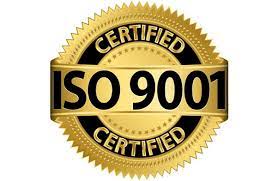Introduction
In today's competitive business landscape, ensuring consistent quality across all aspects of your organization is crucial for success. The ISO 9001 standard provides a globally recognized framework for establishing a robust Quality Management System (QMS). While implementing an ISO 9001 QMS itself offers numerous benefits, ISO 9001 training plays a vital role in maximizing the effectiveness of your system and unlocking its true potential.
ISO 9001 outlines a set of principles for effectively managing an organization's processes. However, translating those principles into actionable practices within your company requires a workforce equipped with the necessary knowledge and skills. ISO 9001 training bridges this gap by providing employees at all levels with a comprehensive understanding of the standard's requirements and how they apply to their specific roles.
Here's a closer look at the key benefits of investing in ISO 9001 training for your organization:
Benefits for Your Organization
Smoother Implementation and Certification: ISO 9001 training equips your team with a clear understanding of the standard's structure, terminology, and expectations. This translates to a smoother implementation process, reducing confusion and ensuring everyone is working towards the same goal. A well-trained workforce also facilitates a more efficient certification audit, minimizing the risk of non-conformities.
Enhanced Employee Engagement: When employees understand the "why" behind quality management practices, they become more invested in their roles and the overall success of the organization. ISO 9001 training fosters a culture of ownership and accountability, encouraging employees to actively participate in process improvement initiatives.
Improved Process Efficiency: The ISO 9001 standard emphasizes continuous improvement. ISO 9001 training equips employees with tools and techniques to identify areas for improvement within their own work processes. This can lead to streamlined operations, reduced waste, and ultimately, increased productivity.
Reduced Errors and Defects: A cornerstone of ISO 9001 is a focus on preventive measures. Through training, employees gain a deeper understanding of potential quality issues and how to mitigate them proactively. This leads to fewer errors and defects, resulting in cost savings and improved customer satisfaction.
Stronger Customer Focus: ISO 9001 places a strong emphasis on meeting and exceeding customer expectations. ISO 9001 training helps employees understand the importance of customer feedback and how to utilize it to continuously improve products and services. This fosters a customer-centric culture within the organization.
Benefits for Your Employees
Enhanced Skill Set and Career Advancement: ISO 9001 training equips employees with valuable knowledge of quality management principles and best practices. This skillset becomes increasingly sought after in today's job market, making them more competitive and opening doors to career advancement opportunities.
Improved Communication and Collaboration: Effective communication and collaboration are essential for a successful QMS. ISO 9001 training encourages employees to understand their roles within the larger system and fosters collaboration across departments. This leads to improved communication and problem-solving abilities.
Increased Job Satisfaction: When employees understand the impact of their work on the overall quality of the product or service, it fosters a sense of purpose and achievement. ISO 9001 training contributes to increased job satisfaction by empowering employees and allowing them to see how their work contributes to the organization's success.
FAQs about ISO 9001 Training
Q. Who should participate in ISO 9001 training?
A. Ideally, all employees within the organization should receive some level of ISO 9001 training. The specific training content can be tailored to different departments and roles to ensure its relevance.
Q. What are the different types of ISO 9001 training available?
A. There are various training options available, including classroom-based sessions, online courses, and blended learning programs.
Q. How much does ISO 9001 training cost?
A. The cost of training varies depending on the provider, training format, and duration. However, it's an investment that pays off in the long run with improved quality, efficiency, and customer satisfaction.
Conclusion
Investing in ISO 9001 training is a strategic decision that empowers your workforce, optimizes your QMS, and ultimately drives organizational success. By equipping your employees with the knowledge and skills to implement quality management principles effectively, you can achieve a competitive edge in the marketplace.


No comments yet